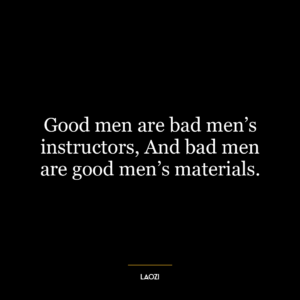This quote by Laozi is a profound statement about the nature of virtue and its relationship with actions and motivations. In essence, it suggests that those who are virtuous focus on resolving issues and fostering harmony, while those who lack virtue are more interested in asserting their own rights and interests, often at the expense of others.
When Laozi says “The virtuous carry out the settlement,” he means that virtuous individuals are peacemakers. They prioritize resolution over conflict, understanding over misunderstanding, and compassion over personal gain. They are not interested in winning for the sake of winning, but rather in finding a solution that benefits everyone involved. They are the ones who, when faced with disputes or disagreements, seek to mediate and reconcile, rather than escalate the situation.
On the other hand, “those without virtue pursue their claims” refers to individuals who are primarily concerned with their own interests. They are more likely to insist on their own rights, make demands, and even resort to conflict if it means getting what they want. They are not necessarily evil, but their lack of virtue – in the sense of moral excellence, goodness, and righteousness – makes them more self-centered and less considerate of others.
Applying this concept to today’s world, we see it reflected in many areas, from politics to business to personal relationships. Leaders who prioritize the common good over personal or partisan gain, companies that value ethical business practices over profit, and individuals who choose understanding and compromise over conflict in their relationships are all examples of the virtuous carrying out the settlement.
In terms of personal development, this quote encourages us to cultivate virtue and prioritize resolution and understanding. It reminds us that being right or getting what we want is not the most important thing; what matters more is how we treat others and whether we contribute to harmony or discord. It also suggests that virtue is not just about our actions, but also our motivations. To be truly virtuous, we must not only do good, but also do good for the right reasons.















